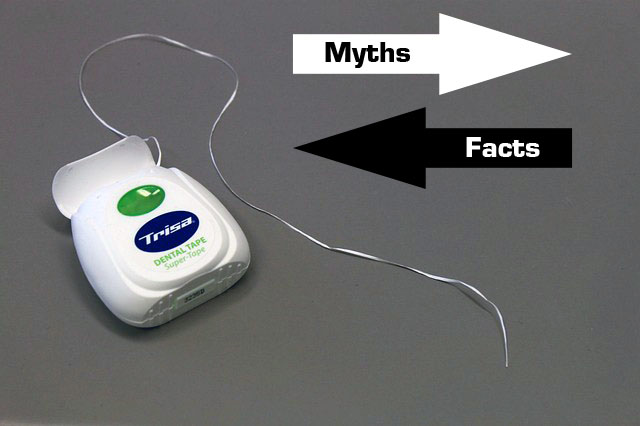
20 Jul Common Dental Myths and the Truth Behind Them
 Any kind of dental work done can be a nerve-racking experience, for both young and old. It doesn’t help that there is a lot of stress and anxiety surrounding the idea of going to the dentist, which often times makes one go without having their six-month checkup. This often times leads a person to only see the dentist when there is something apparently wrong, and this even in itself makes going to the dentist a “painful” experience. Unfortunately, there are a lot of myths floating around dentistry and dental care and believing something that isn’t true can only lead to more unnecessary fear.
Any kind of dental work done can be a nerve-racking experience, for both young and old. It doesn’t help that there is a lot of stress and anxiety surrounding the idea of going to the dentist, which often times makes one go without having their six-month checkup. This often times leads a person to only see the dentist when there is something apparently wrong, and this even in itself makes going to the dentist a “painful” experience. Unfortunately, there are a lot of myths floating around dentistry and dental care and believing something that isn’t true can only lead to more unnecessary fear.
However, knowledge is power and in order to lie some of your fears to rest, here are some of the most common dental myths and the truth behind them:
Myth: Eating sweets causes cavities
Even though eating sugar does promote cavities, sweets are not the only food item that contains sugar. However, sugar is a type of carbohydrate, so cavities can also be caused by eating bread, vegetables, potato chips, rice, and crackers. This is why having good oral hygiene habits is so important; the combination of sugar, bacteria, and acid is the true cause of tooth decay so it’s impossible to avoid. Even if you don’t eat a lot of junk food, if you have poor oral hygiene habits you will still be prone to tooth decay. It does not discriminate, so be sure to brush your teeth, or at least rinse, after every meal.
Myth: If I am not in pain, my teeth are fine
Unfortunately for those who believe this myth, when you feel pain that is not a signal that the beginning of a problem is starting to occur. Any type of pain that is coming from your mouth, teeth or gums is a sign that a serious problem may have already occurred. You can have decay going on and not be able to feel it until the problem gets severe. This is why visiting your dental for your annual six-month checkup is so vital. When a problem is caught early you will suffer less pain and anguish, and your treatment options will be much easier on your wallet.
Myth: Adults are not as prone to cavities as children are
This is false, as mentioned in the first myth, tooth decay does not discriminate. Tooth decay can and will happen if you don’t take care of your mouth, and in the case of children, they do not have the knowledge necessary to make healthy choices for their mouth. Age and experience can teach you that, however it often times comes at a price. This is why instilling good dental habits in young children is so important; you are giving them the tools to keep themselves and their teeth healthy for the long run.
Myth: Flossing is not important; you only need to brush your teeth
Brushing alone does not clean the entire surface of the tooth, and unfortunately flossing is the step in daily oral hygiene care that most people skip. In fact, flossing cleans about 33% of the tooth surface that brushing alone cannot reach. It’s real easy for bacteria to accumulate in those hard to reach areas, and this can lead to tooth decay and gum disease. Plus, flossing is a cheap and easy way to keep your teeth and mouth healthy and pain free.
Myth: You can replace brushing with chewing sugarless gum after a meal
NOTHING can replace brushing and having proper oral hygiene habits. Chewing gum can be good in a pinch, but it is not a long-term solution. If you were out eating dinner and didn’t have a toothbrush on you, chewing gum can help, but so can rinsing your mouth out with water, or eating an apple. But in either regard, this is not a replacement. In order to practice good oral hygiene habits, you should brush your teeth with a toothbrush after every meal.


